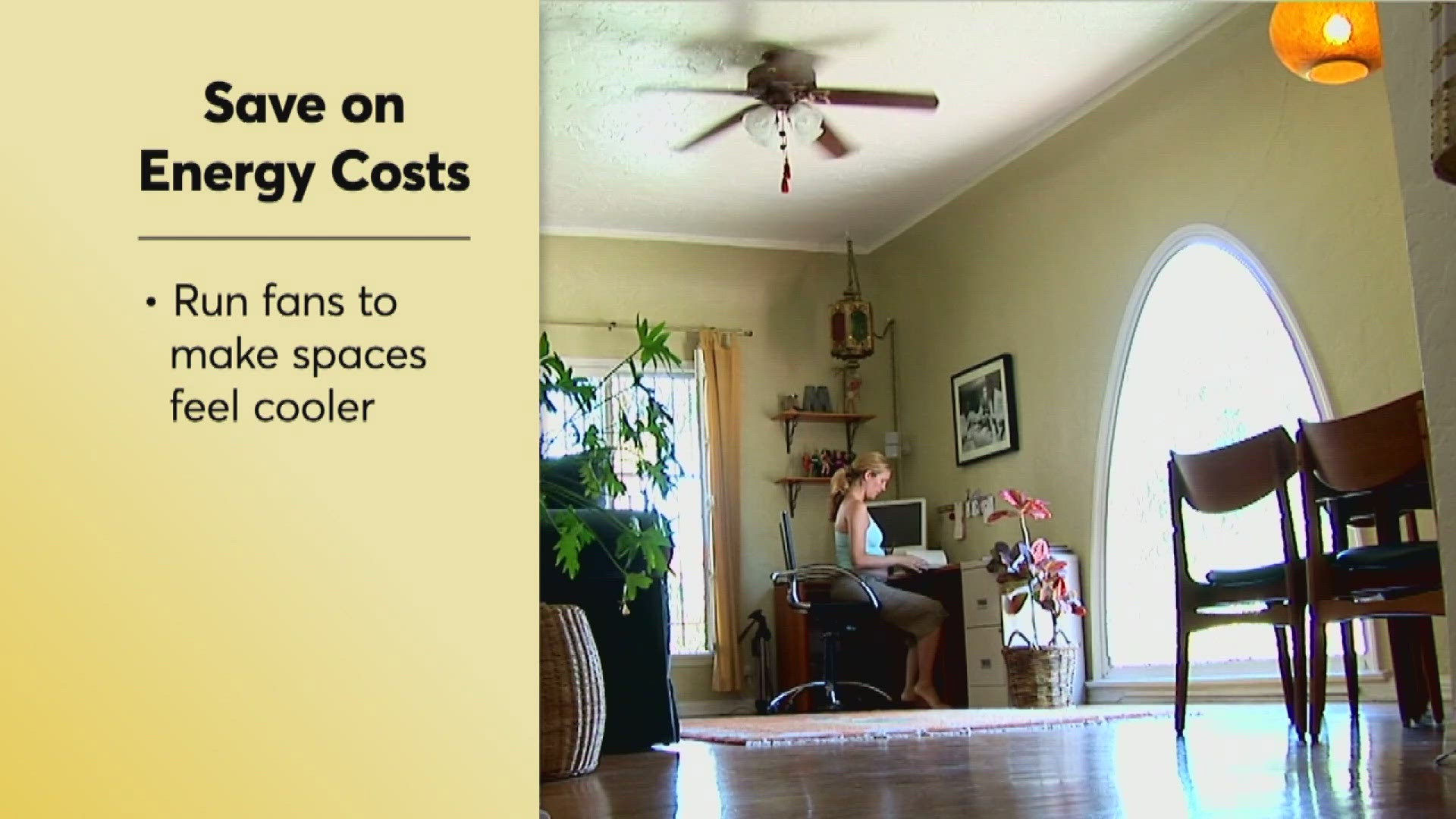GREENSBORO, N.C. — Add keeping cool this summer to the list of things costing more. According to new energy projections, look out for a nearly 8% percent increase across the country, or about $719 more to cool a home. How can you minimize the impact? Consumer Reports has a few recommendations.
First, turn up your AC. This might cause a heated argument in your home, but you can save as much as 10 percent a year on heating and cooling by simply adjusting your thermostat seven to ten degrees for 8 hours daily. The question is, will you be comfortable?
"If you do convince your family to turn up the AC, using a ceiling fan or box fan can make up the difference; running one will actually make the room feel as much as four or even five degrees cooler," said Dan Wrocklawski, Consumer Reports.
Add some technology to your home in the form of a smart or programmable thermostat; they make it easy to set a money-saving energy-conserving schedule.
"Using a programmable thermostat is really the most effective way to save money, and it’ll even help you save money on heating bills in the winter," said Wrocklawski.
Some thermostats, like the $250 Google Nest Smart Learning Thermostat, will learn your day-to-day cooling preferences and adjust accordingly. 2WTK found that same thermostat on the Duke Energy Online Savings page for $146 or $96 after rebates.
Next, repair any leaky AC ductwork for central air and fill in holes and cracks around your windows and doors. Insulate around your window air conditioners to keep warm air from entering and cool air from escaping.
Also, close your curtains and blinds during the day to keep the sun from heating your home.
But never sacrifice safety for savings. Heat-related deaths and illnesses happen quickly and far too often. At the very least, consider a window air conditioner where you sleep.
The small-capacity Frigidaire FHWW064WD1 that costs $289 cools up to 250 square feet and earned an excellent rating in CR’s brownout tests, which are designed to mimic conditions you might find in extreme heat when the power grid is overloaded.

